April 16, 2024
Exchange Meeting between the University of New Mexico, United States and Nagasaki University School of Pharmaceutical Sciences Students
Two senior year pharmacy students, Makhaila M. Esquibel, and Mostafa Qasemi, along with two faculty members from the University of New Mexico (UNM) in the United States, visited the Nagasaki University School of Pharmaceutical Sciences for two weeks from March 5 (Monday) to 15 (Friday) to gain practical knowledge and insights of pharmacists in Japan.
Nagasaki University and the University of New Mexico signed an agreement to exchange students and faculty on February 14, 2023. Since then, both universities have been utilizing their unique regional characteristics, as well as their educational and research resources, to facilitate this training program.
The training program began with preliminary training at the clinical training room in the Nagasaki University School of Pharmaceutical Sciences, followed by visits to several Kampo pharmacies and drugstores, and training at the University Hospital School of Pharmaceutical Sciences. During this training, the students were taught how to prepare decoctions and Shiunko (purple cloud plaster), which is a type of Kampo medicine. Later, during the remote island training on Kamigoto Island, the students observed and practiced medicine preparation and home health care at a pharmacy and hospital. This training was unique to the remote islands, and the students found it to be fulfilling.
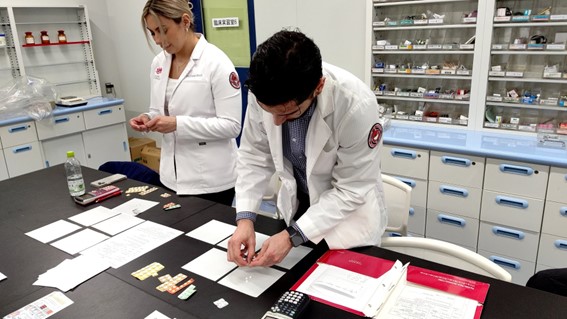 Receiving preliminary training in the clinical training room at Receiving preliminary training in the clinical training room at the School of Pharmaceutical Sciences |
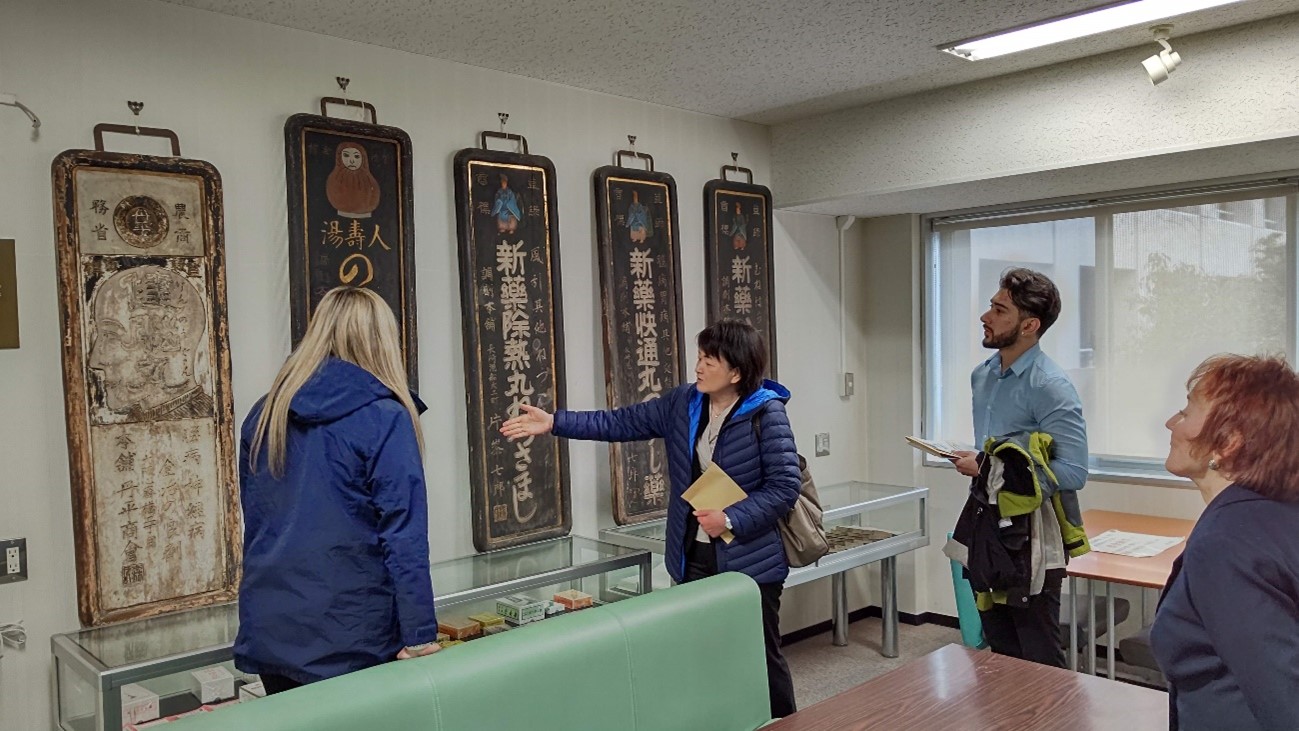 Being guided through the Museum of the History of Medicines at Being guided through the Museum of the History of Medicines at the School of Pharmaceutical Sciences |
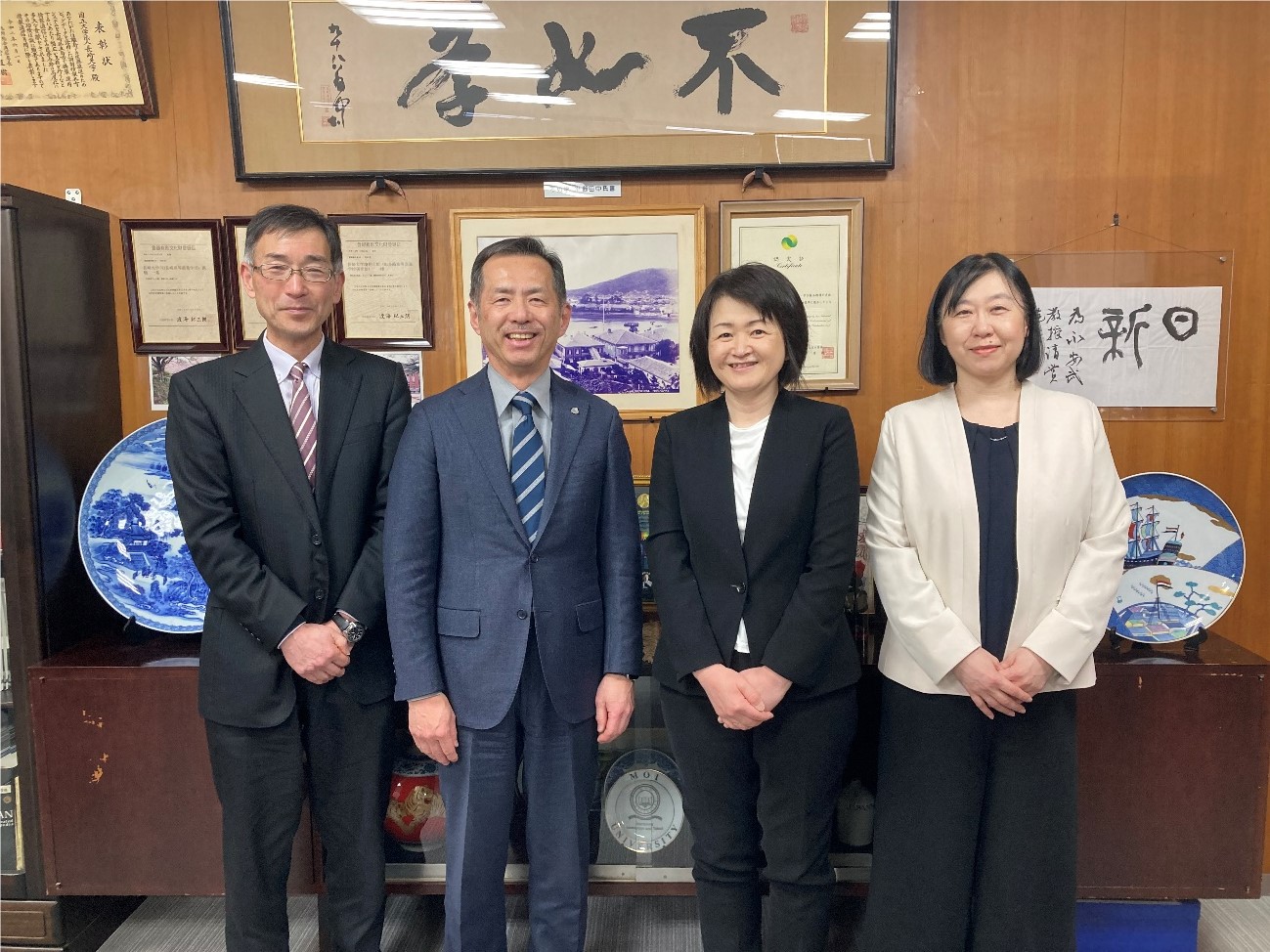 Courtesy visit to the President on Thursday, March 14. Courtesy visit to the President on Thursday, March 14. |
On Friday, March 15, the last day of the program, an inter-university student exchange meeting was held. From Nagasaki University, 5th-year students Ayaka Torigoe and Haruna Uezono of the School of Pharmaceutical Sciences gave a presentation titled "Made in Japan! About Kampo Medicines" in English, and from UNM, Makhaila M Esquibel and Mostafa Qasemi presented the results of this training program under the title of "Report on the Study in Nagasaki."
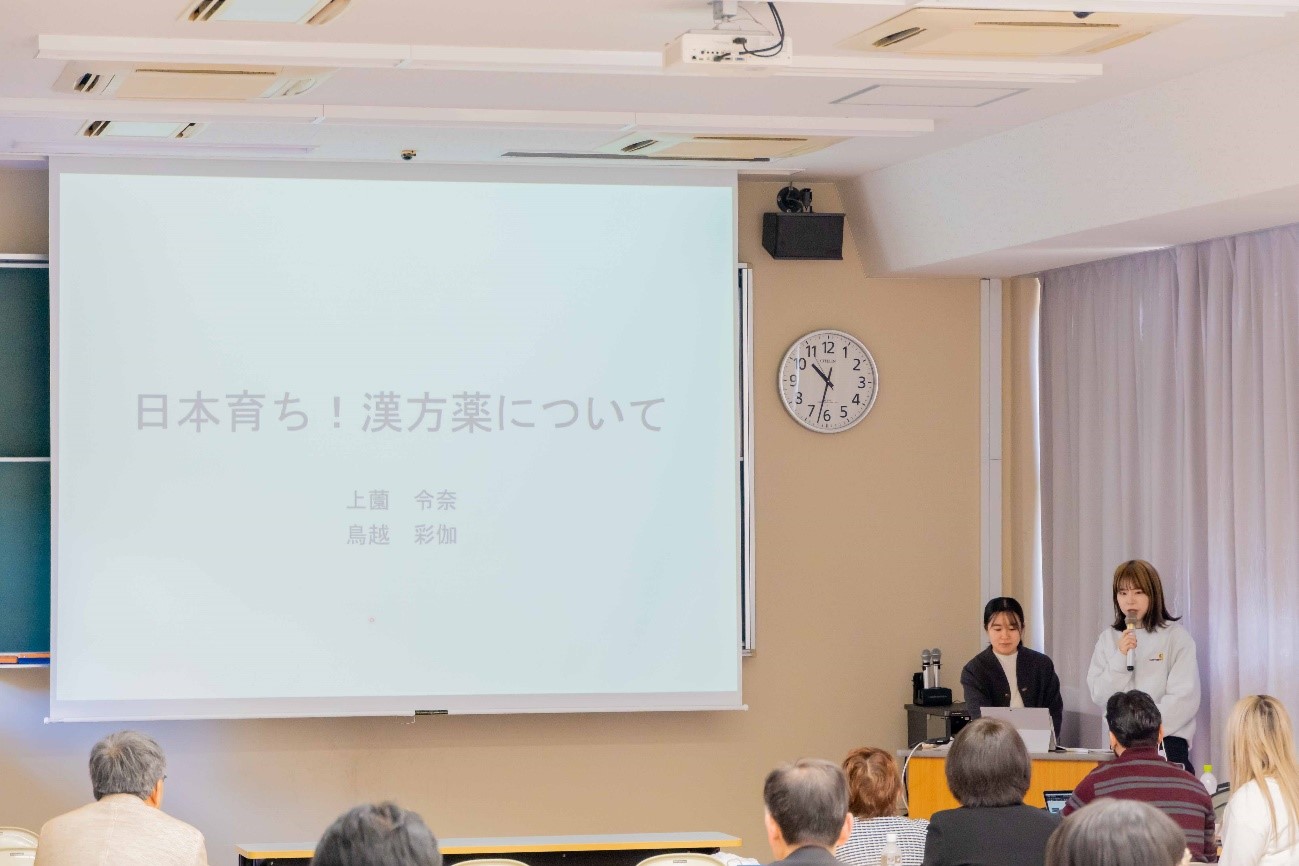 Presentation by Ayaka Torigoe and Haruna Uezono Presentation by Ayaka Torigoe and Haruna Uezono |
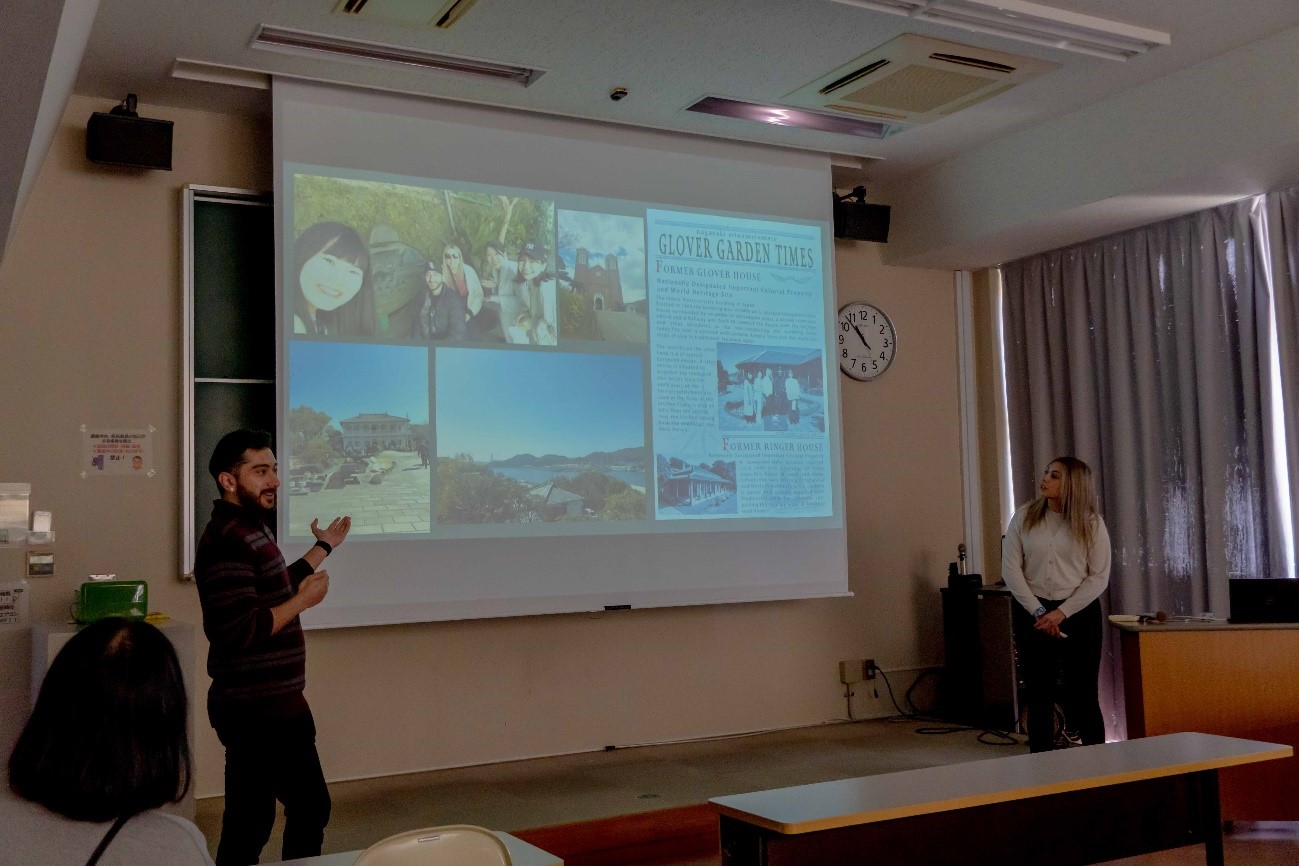 Presentation by Makhaila M Esquibel and Mostafa Qasemi Presentation by Makhaila M Esquibel and Mostafa Qasemi |
Makhaila M Esquibel and Mostafa Qasemi gave a presentation on the differences in the role of pharmacists in Japan and the United States. They said, "After experiencing the work of a Japanese pharmacist made me realize that the scope of what a pharmacist can do is much broader in the U.S."
In the United States, vaccinations can be administered by pharmacists at pharmacies, while in Japan, only licensed doctors can give vaccinations.
It is worth noting that Japan has some unique offerings that are not available in the United States. For instance, there are Kampo, which is a traditional Japanese medicine, and home healthcare. Makhaila M Esquibel and Mostafa Qasemi were enthusiastic about bringing the valuable medical practices they learned in Nagasaki back to New Mexico to apply to community medicine.
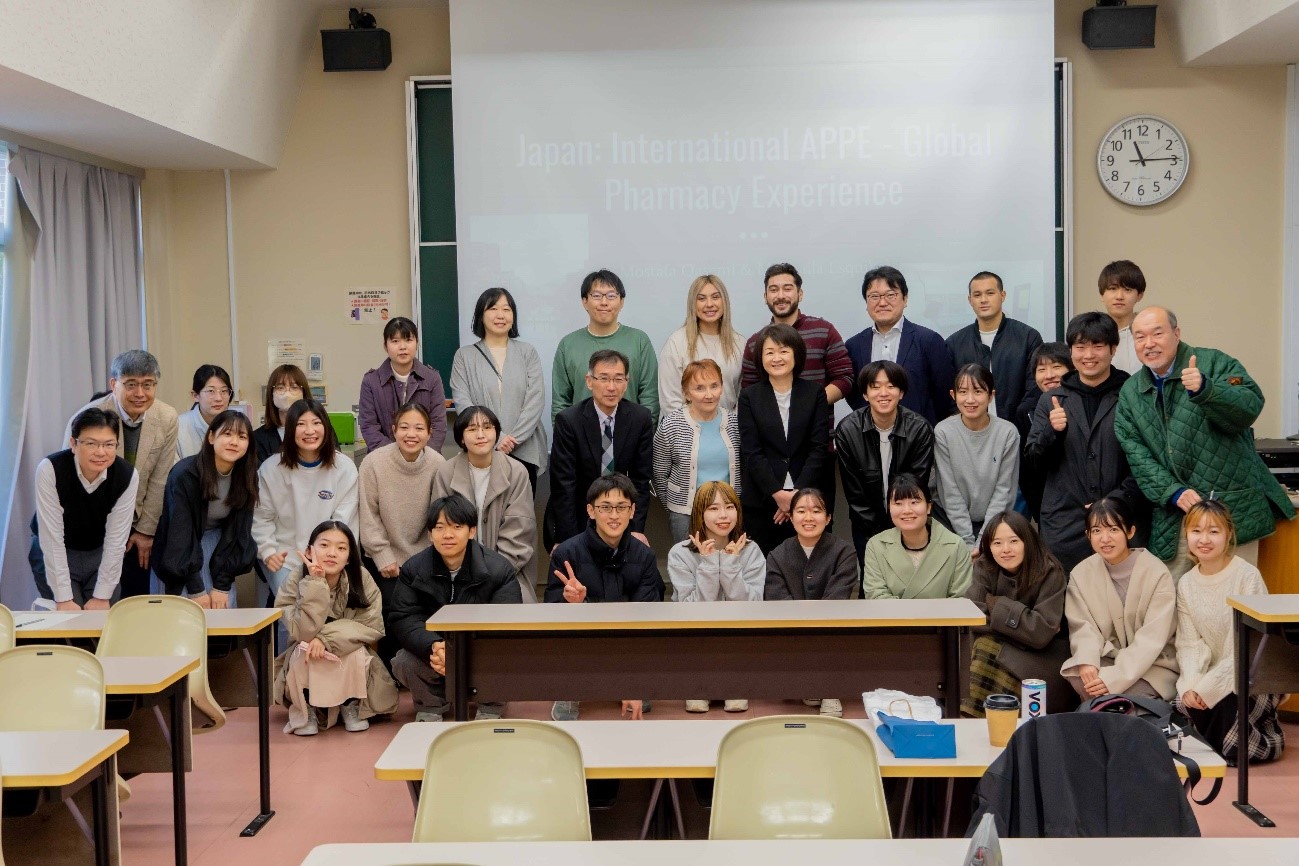 A commemorative photo with the participants A commemorative photo with the participants |
A student who took part in a cultural exchange program shared their observations about the differences between Japan and the United States. They were surprised by the interest UNM students had in everyday things from Japan, which helped them appreciate unique aspects of their home country, like the widespread availability of traditional medicine (Kampo) and home healthcare. They found it interesting that in the United States, pharmacies are often inside supermarkets, making it convenient to pick up medicine while shopping. This was different from Japan, where you typically go to the hospital first and then to a separate pharmacy. This experience highlighted the different ways people access medical care in the two countries. Both groups of students learned a lot from each other.
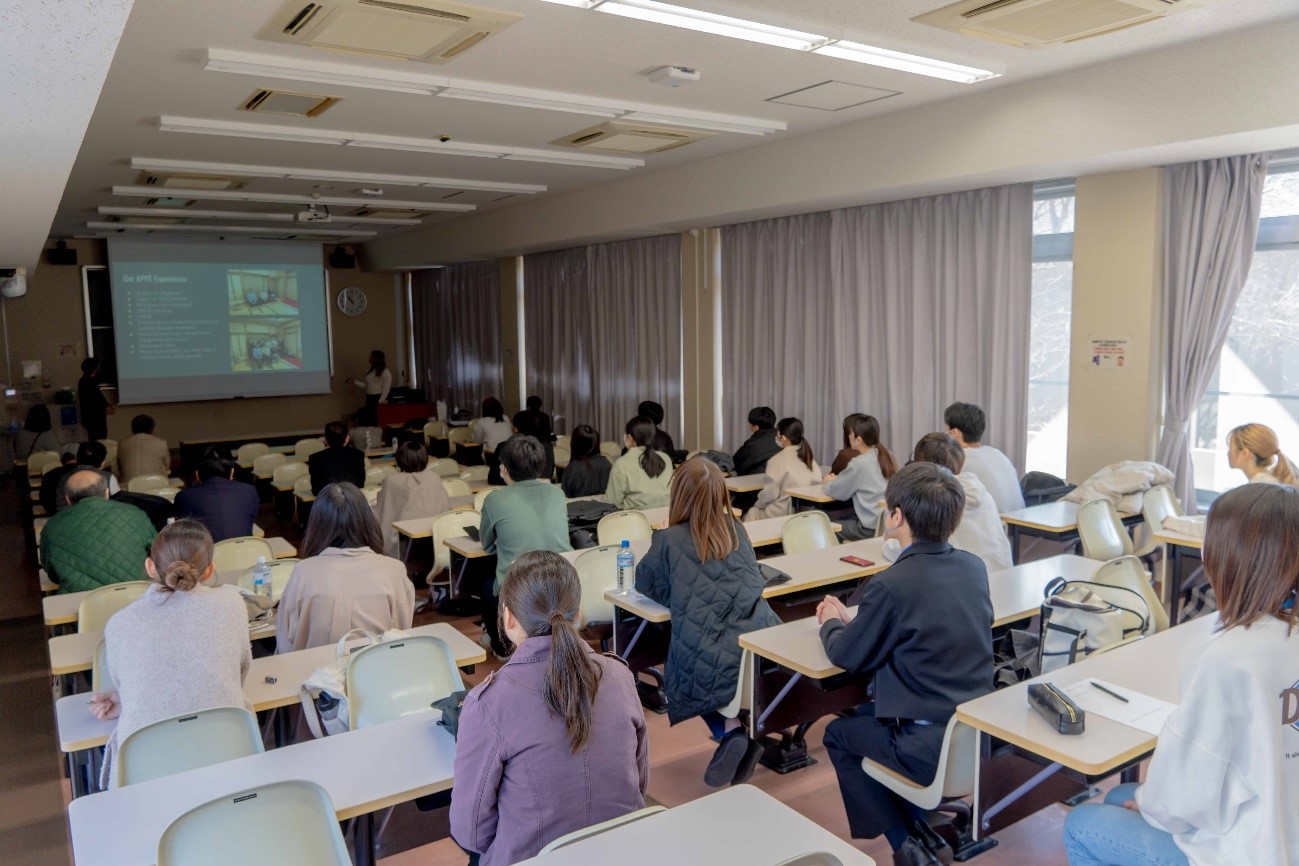 Students listening to a UNM student's presentation Students listening to a UNM student's presentation |
Dr. Takeda from the University of New Mexico, United States, commented:
I would like to express my gratitude to everyone at Nagasaki University for their cooperation and support in organizing this valuable training. The training was an enriching experience, and I would like to highlight the significance of what we learned during our remote island training. Our university is located in New Mexico, where depopulation is a severe issue outside the city center. As a School of Pharmacy, we are committed to exploring how pharmacists can contribute to improving medical care in underpopulated areas. Nagasaki shares this challenge with New Mexico, as it also has remote islands with underpopulated areas. Learning about the innovative work of pharmacists in Nagasaki is highly meaningful to us, and we hope to continue to build on this exchange by leveraging the knowledge and expertise of both our universities and regions.










